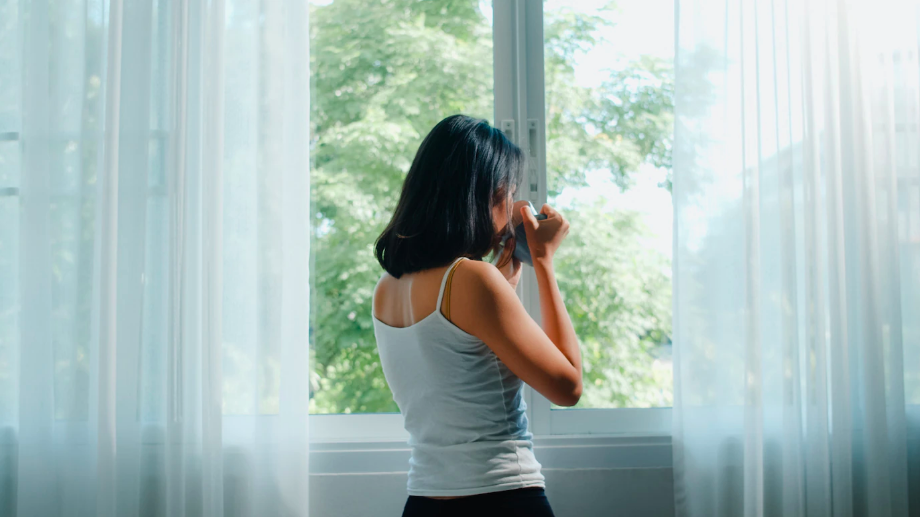Liana learnt that circumstances are sometimes beyond her control and that it’s better to let go of some painful memories of her past. Photo: Freepik
Schoolteacher Liana Mohd believes that one’s past doesn’t have to determine their future. It’s a belief that she’s formed from her own life experiences.
She was orphaned when she was just five years old, placed in an orphanage at seven, adopted at 14, and grew up amidst elderly residents in a home where her adoptive parents were caretakers.
Liana, 48, says that she’s been through a lot – some of which she hesitates to talk about – but she’s “done well for herself” and is “in a good place”.
“My only memory of my birth father was as a five-year-old child,” she recalls.
“This tall figure, slightly gaunt, held my hand – his grip was strong yet gentle – as we walked around the neighbourhood in the evening. He pointed out the different trees and plants. I picked saga seeds from the ground and plucked flowers for a vase. It was our daily routine,” she says.
“This was also my last memory of him because he passed away from a stroke when I was five,” she adds.
Having no other relatives who could take her in – her mother passed away a year after giving birth to her – she was taken care of by her grandparents. And when her grandparents passed on, Liana, at the age of seven, was sent to an orphanage.
“When I was 14, I was adopted by this kindly couple whom I call Atuk (Grandfather) and Nek (Grandmother). They were older than my birth parents and had no children of their own, and they raised me as their own daughter,” she says.
“Atuk and Nek ran a home for the aged in a small town in Perak, and we lived on the premises in staff quarters.
“They took good care of the elderly residents, and all was well, but it was a somewhat depressing environment for a young child to grow up in,” she admits.
Liana shares her memories of the elderly pakcik and makcik (uncles and aunties), as she referred to them, passing their time daily at the home.
“I saw some become ill and recover, while others didn’t get better and passed on. There were those who were very much in their own world, having regressed into dementia,” she says.
“At a very young age, I interacted with the elderly as I helped Atuk and Nek with chores after school, and it gave me a very practical and sober view on life: no matter what comes our way - circumstances, success, failures, illness, recovery, death - we have to go on with life,” she shares.
“Although the home closed down after Atuk and Nek passed away, the memories are still very clear in my head,” she adds.
Letting go of the past
Liana says that her adoptive parents weren’t rich, but they provided a comfortable life for her, taught her good values, and they always stressed the importance of a good education, which indirectly influenced her decision to eventually become a teacher.
She is now happily married to a lecturer, and they have two grown-up children aged 23 and 24, who are working.
“Growing up, I was a shy child and a loner even though I eventually outgrew this and became more confident with age. I had few friends but close ones. And till this day, I never told anybody that I was adopted and only my immediate family – my husband and children – know about it. Most people thought that I was living with my grandparents after my parents passed away,” she reveals.
Liana lived at the orphanage for seven years (until she was 14), and even though it has since closed down, she still keeps in touch with her childhood friends from her time there.
“I’ve friends from the orphanage who were abandoned by their parents at birth and I still keep in touch with these friends. It’s through my interactions with them that I realised that everyone’s family background may be different but we all have more in common than we realise,” she says.
“All of us face similar challenges in life, and we’ve to learn to overcome these obstacles in our own way. We also have our own dreams and goals, and strive to achieve them... you can’t understand what true success is until you’ve failed a few times,” she adds.
“People might think that just because you’re adopted or given away at birth that you’re unwanted, but that couldn’t be further from the truth. Sometimes, circumstances are beyond our control. We can’t judge people for what happened so it’s better to just let go of the past,” says Liana.
“In the orphanage, there were children from abusive homes. There were also those who were given away at birth because of accidental pregnancies to unwed couples, and children resulting from rape. They tell me they’re thankful to be alive and not aborted as a result of something bad that happened,” she explains.
Liana says that she’s learnt life lessons from her friends from the orphanage.
“A few have shared with me that the only way they’ve been able to overcome the bad memories from their past is to create new and happier memories to replace those bad memories from the past,” she says.
In the end, she says, we must not be limited by our past.
“Take steps – one day at a time – to make a better and happier future for yourself,” she says.







